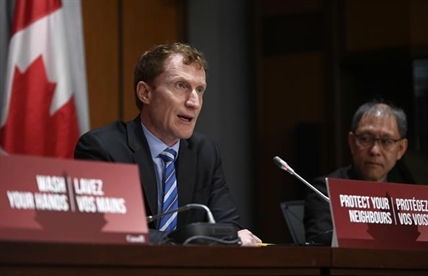Elevate your local knowledge
Sign up for the iNFOnews newsletter today!
Sign up for the iNFOnews newsletter today!
Selecting your primary region ensures you get the stories that matter to you first.

OTTAWA – The federal minister of Indigenous services says that even though the number of COVID-19 cases on reserves remains low, no one should be complacent.
Marc Miller told reporters during a news conference on Friday that borders and checkpoints are good for identifying people with COVID-19 entering a community, as well as making people aware of the disease, but they can lead people to believe that they are safe.
He says the remoteness of many Indigenous communities as well as aggressive measures taken by their leadership has helped keep out the coronavirus, but that the communities could be more adversely affected due to longstanding social economic inequities.
As of Thursday, there were 40 cases of confirmed COVID-19 in First Nation communities on reserves, and five cases in Nunavut.
Dr. Tom Wong, chief medical officer of public health, told the news conference it's very important to keep COVID-19 off reserves, and to encircle cases that are identified with contact tracing.
Wong also put out a call for nurses to step forward to serve in the North, acknowledging concerns that shortages of health professionals in remote areas has led to them flying from community to community, potentially spreading the disease.
News from © iNFOnews.ca, . All rights reserved.
This material may not be published, broadcast, rewritten or redistributed.

This site is protected by reCAPTCHA and the Google Privacy Policy and Terms of Service apply.
Want to share your thoughts, add context, or connect with others in your community?
You must be logged in to post a comment.